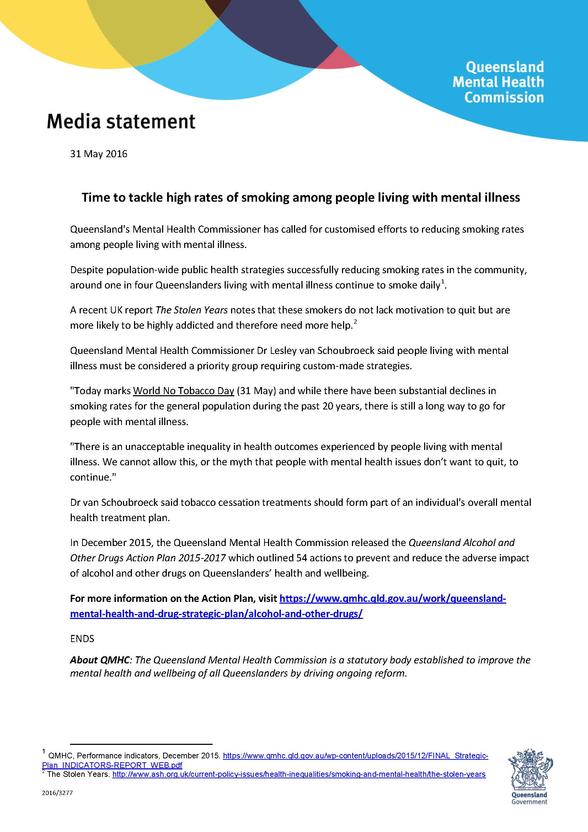Queensland's Mental Health Commissioner has called for customised efforts to reducing smoking rates among people living with mental illness.
Despite population-wide public health strategies successfully reducing smoking rates in the community, around one in four Queenslanders living with mental illness continue to smoke daily[1].
A recent UK report The Stolen Years notes that these smokers do not lack motivation to quit but are more likely to be highly addicted and therefore need more help.[2]
Queensland Mental Health Commissioner Dr Lesley van Schoubroeck said people living with mental illness must be considered a priority group requiring custom-made strategies.
"Today marks World No Tobacco Day (31 May) and while there have been substantial declines in smoking rates for the general population during the past 20 years, there is still a long way to go for people with mental illness.
"There is an unacceptable inequality in health outcomes experienced by people living with mental illness. We cannot allow this, or the myth that people with mental health issues don’t want to quit, to continue."
Dr van Schoubroeck said tobacco cessation treatments should form part of an individual's overall mental health treatment plan.
In December 2015, the Queensland Mental Health Commission released the Queensland Alcohol and Other Drugs Action Plan 2015-2017 which outlined 54 actions to prevent and reduce the adverse impact of alcohol and other drugs on Queenslanders’ health and wellbeing.
For more information on the Action Plan, visit https://www.qmhc.qld.gov.au/work/queensland-mental-health-and-drug-strategic-plan/alcohol-and-other-drugs/
[1] QMHC, Performance indicators, December 2015. https://www.qmhc.qld.gov.au/wp-content/uploads/2015/12/FINAL_Strategic-Plan_INDICATORS-REPORT_WEB.pdf
[2] The Stolen Years. http://www.ash.org.uk/current-policy-issues/health-inequalities/smoking-and-mental-health/the-stolen-years

